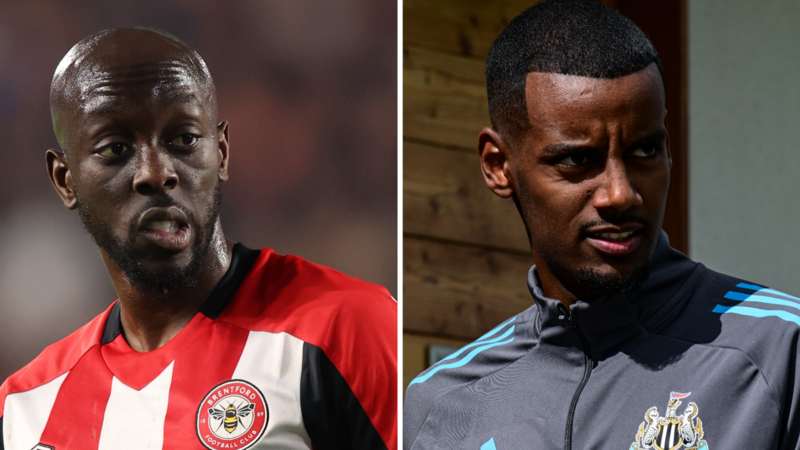Rooney Slams Wissa, Declares Isak's Return Impossible



Wayne Rooney's recent comments about Yoane Wissa's removal of all traces of Brentford from his Instagram have sparked discussions among fans and fellow professionals. His blunt declaration calling the act "very disrespectful" shines a spotlight on the modern relationship between football players, their clubs, and how actions on social media are perceived.
The entire episode revolves around the nature of loyalty and professionalism in the rapidly evolving world of professional sports. Wissa, who joined Brentford in 2021, has been an influential player during his time at the club. However, his decision to erase any affiliation with the Bees on his popular Instagram page has raised questions about his current sentiments towards the club, and perhaps hints at deeper issues or upcoming chances within his career.
Social media plays a massive role in how athletes interact with fans and express personal views about their careers. A player's online actions are often dissected for deeper meanings. Removing a club from one's social profile can be interpreted as a sign of dissatisfaction or an impending exit, either of which can unsettle fans and disrupt team dynamics. It’s this disruption to team cohesion that Rooney criticized, highlighting the importance of maintaining a respectful and professional attitude, no matter the personal circumstances.
On another front, Rooney touched upon the situation of Alexander Isak at Newcastle. The talented forward’s future at Newcastle has been under speculation, and Rooney’s comments suggest that reintegrating a player who might have seemed on the way out can be a complex challenge. This not only affects the player in question but also the team's chemistry, as teammates might feel uncertain about their position or the club's direction.
The reaction of players in such scenarios is a delicate dance of personal ambition and collective responsibility. While on one hand, players like Wissa are ambitious and might seek new challenges or react to off-field situations, they are also expected to show commitment and respect towards their current contracts and clubs. Similarly, for players like Isak, the path back into the fold, if they were ever on the outs, requires a careful navigation of personal goals and team objectives.
Furthermore, Rooney’s insights also reflect his experiences and values as a former footballer who has seen the heights of club loyalty and player management during his illustrious career with clubs like Manchester United and Everton. His perspective is invaluable in understanding not just the actions of Wissa and Isak, but also the potential repercussions within the locker room and the fanbase.
The broader implication of Rooney's critique points to a deeper narrative about football culture today. The era of social media and high-profile transfers has morphed player-club relationships into highly public and sometimes theatrical displays. Decisions once made behind closed doors are now subject to public scrutiny and interpretation, often leading to widespread speculation and debate.
Clubs, on their part, must navigate this new reality where player actions on social media can signal intentions and influence perceptions. The management has to balance supporting players' personal and professional growth while ensuring that the club’s objectives and values are upheld. This balancing act is crucial in maintaining a stable, focused team environment, capable of achieving on-field success.
As the football community watches these situations unfold, the lessons are clear: modern football requires not just physical and technical skill but also a savvy understanding of public relations and personal branding. Players, while pursuing individual careers, must remain conscious of their broader responsibilities and impacts. Meanwhile, clubs need to engage with players transparently and supportively to foster an environment of mutual respect and shared goals.
In essence, Rooney's criticism is a call to action for players like Wissa and Isak to consider their professional conduct as much as their career ambitions. As football continues to evolve, the interplay between personal actions and professional outcomes will only grow more intertwined and significant.